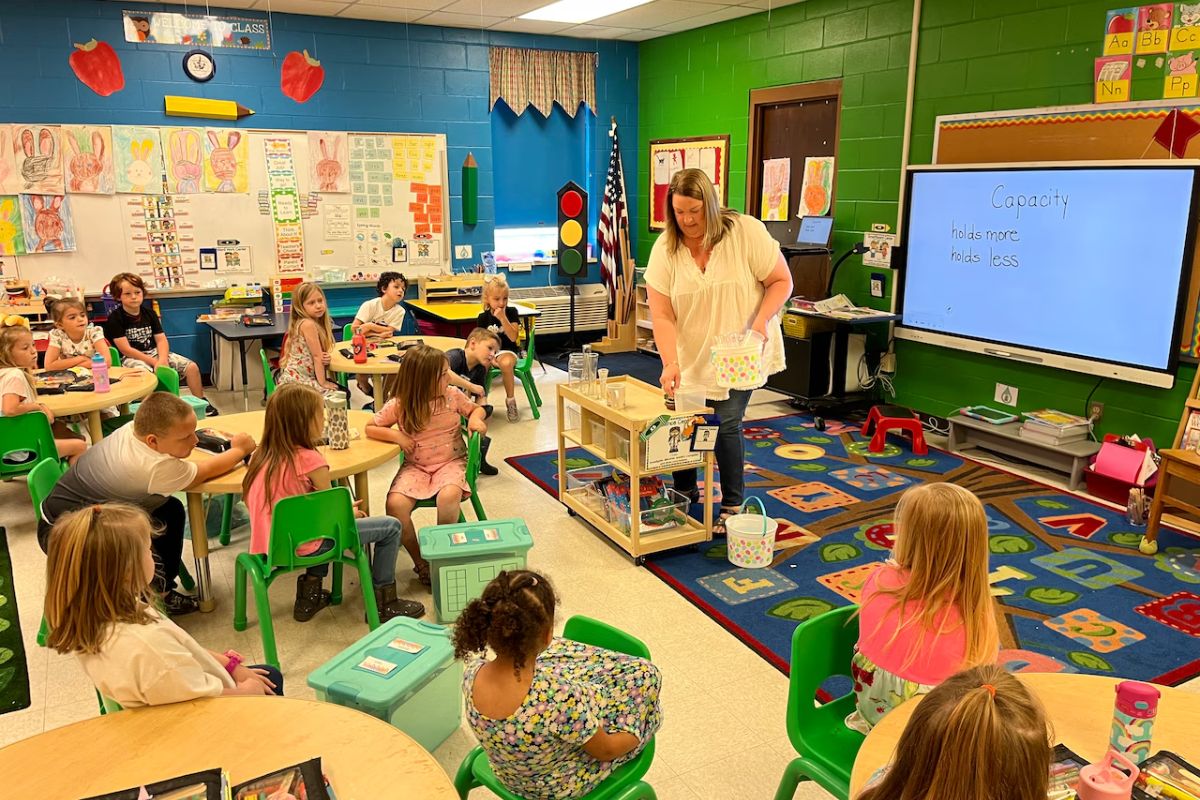Alabama Considers 11billion Education Budget: Alabama is considering an extensive $11 billion education budget, which may involve a 2% salary increase for teachers. This proposal highlights the state’s commitment to enhancing its educational system. The allocation plan includes various provisions, such as potential boosts for higher education, charter schools, and educator salaries.
Additional funding from different sources is earmarked to bolster different educational programs, ensuring a holistic approach to addressing the state’s educational needs. The proposed adjustments represent a strategic effort to optimize resources for maximum impact and align with key educational priorities. More details on specific changes, proposals, and funding allocations are available in the thorough review.
Overview of Proposed Changes to Alabama’s Education Budget
Proposed revisions to Alabama’s education budget aim to allocate additional funds totaling up to $11 billion, potentially facilitating a 2% increase in educator salaries, bolstering higher education financial support, and enhancing funding for charter schools.
The House committee, in reviewing Gov. Kay Ivey‘s education budget proposal, is considering significant changes that could have far-reaching impacts on Alabama’s educational landscape. The proposed budget increase of up to $11 billion signifies a substantial commitment to improving various aspects of the education system.
The potential 2% raise in educator salaries is a welcome development that could help attract and retain talented educators in the state. Additionally, the additional financial support for higher education institutions promises to enhance the quality of education offered to students across Alabama.
The proposed funding boost for charter schools underscores a growing emphasis on educational diversity and innovation within the state. These proposed changes reflect a concerted effort to prioritize education and invest in the future of Alabama’s students and educators.

ALSO READ: Madison County School Unveils Innovative ‘Culinary Garden
Breakdown of Proposed Allocations
The House proposal for Alabama’s education budget comprises three distinct allocations. These include a $9.3 billion regular budget (HB145) and two supplemental appropriations totaling $1.7 billion. Together, these allocations amount to a total budget of $11 billion, surpassing Governor Kay Ivey’s initial proposal by $300 million.
The $9.3 billion regular budget, outlined in HB145, forms the foundation of the education budget, addressing core educational needs and expenses. The two supplemental appropriations, totaling $1.7 billion, serve to enhance specific areas within the education sector, providing additional support where necessary.
Noteworthy is the fact that the proposed 2% pay raise for education employees is estimated to cost $92 million, reflecting a commitment to investing in the state’s educators. This breakdown of allocations within the proposed $11 billion education budget showcases a holistic approach to addressing various aspects of Alabama’s educational system while also prioritizing the well-being of its teachers.
Detailed Changes and Proposals
Amidst deliberations on Alabama’s education budget, House Education Budget Chairman Danny Garrett presented a detailed overview of the proposed changes and initiatives, outlining strategic adjustments to the allocation plan.
One significant modification highlighted by Chairman Garrett was the reallocation of funds originally earmarked for rural broadband. Governor Ivey’s proposed $25 million for this purpose was dropped, with the funds being redirected towards various programs and initiatives within the education sector.
These reallocated funds are set to support initiatives such as funding for gifted students, pre-K pilot programs, and youth leadership development. By repurposing these funds, the state aims to address key areas of need within the education system, focusing on enhancing educational opportunities for students across different levels.
Chairman Garrett’s presentation underscored a shift towards targeted investments that align with the state’s educational priorities, reflecting a strategic approach to optimizing the allocation of resources for maximum impact and effectiveness.

Additional Funding and Line Items
Incorporating additional funding and line items into the House proposal for Alabama’s education budget encompasses strategic financial allocations aimed at enhancing key educational initiatives and infrastructure development.
The proposal includes allocating $1 billion from the Advancement and Technology Fund, $20 million for a new statehouse building, and $7 million for capital expenditures for public charter schools.
Additionally, adjustments to Governor Ivey’s proposals for programs like school buses, the school for healthcare sciences, and funding for community colleges and universities have been outlined. These changes signify a thorough approach to addressing various needs within the education sector.
By earmarking specific amounts for critical areas such as technology advancements, infrastructure enhancements, and targeted educational programs, the House aims to bolster the overall quality and effectiveness of Alabama’s education system.
The proposed allocations reflect a commitment to fostering growth and innovation within the state’s educational institutions while ensuring that resources are allocated efficiently and effectively to benefit students, educators, and the broader community.
News in Brief
The proposed $11 billion education budget in Alabama includes a 2% pay hike for teachers. The budget allocations and line items aim to address various needs within the education system.
These changes reflect the state’s commitment to investing in education and supporting educators. The proposed budget highlights the importance of prioritizing education and ensuring that resources are allocated effectively to improve the quality of education in Alabama.

